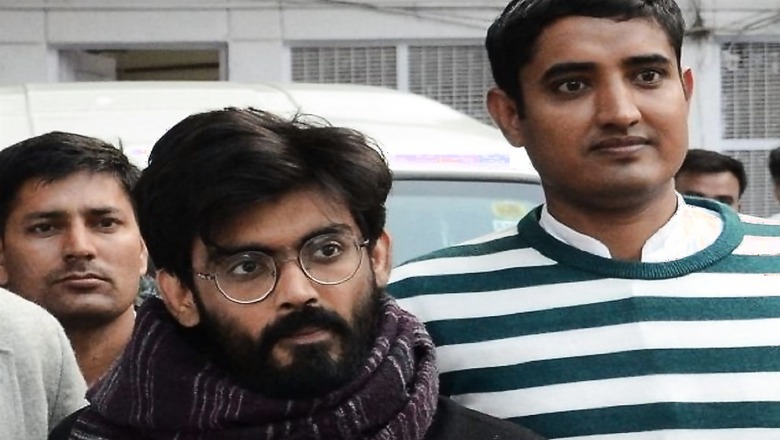
views
A Delhi court on Thursday extended till October 22 the judicial custody of Jawaharlal Nehru University (JNU) research scholar Sharjeel Imam, arrested under the anti-terror law, in connection with the communal violence in the Northeast area of the national capital in February.
The Special Cell of Delhi Police had arrested Sharjeel on August 25 under the Unlawful Activities Prevention Act in connection with the riots, a day after being brought to the capital city from a jail in Assam on a production warrant.
Sharjeel, a PhD student at the JNU’s Centre for Historical Studies, was produced before the court through video conferencing from jail number one of the Tihar complex at the end of a month-long judicial custody.
“Never have I understood why I am in the case,” Sharjeel’s counsel Surbhi Dhar said on the behalf of her client. She also opposed the extension of judicial remand and protested why the remand copy has not been supplied to them.
The case pertains to a ‘conspiracy’ to incite the riots, which had left 53 people dead and 748 injured. Even though the police have filed a voluminous charge sheet in the matter, his name is not mentioned in it and will be added in the supplementary charge sheet.
Sharjeel’s name, however, cropped up in the disclosure statements and statements of the witnesses in the charge sheet, involving 15 accused, including Tahir Hussain, Safoora Zargar, Ishrat Jahan and others.
Imam had come into the limelight for his alleged inflammatory speech in Delhi’s Jamia Millia against the Citizenship Amendment Act and the National Register of Citizens on December 13 and subsequently on January 16 at the Aligarh Muslim University, where he allegedly threatened to “cut off” Assam and the rest of the northeast from the country.
On July 25, the police had filed a charge sheet against Imam in connection with a case related to his alleged inflammatory speeches during the protests against the Citizenship Amendment Act (CAA) at several places.
The 600-page charge sheet was filed, under section 124A (Sedition), 153(A) (Promoting enmity), 153 (Assertion prejudicial to national integration) (promoting enmity, Hatred between different communities, 505 (spreading rumours) IPC and Section 13 of Unlawful Activities (Prevention) Act, 1967, in Delhi’s Patiala House court.

















Comments
0 comment